Harnessing AI Marketing Agents
The Complete Guide to Autonomous Marketing Execution
Understanding the AI Marketing Agent Revolution
I've been watching the marketing landscape transform dramatically with the rise of AI marketing agents. These aren't just fancy tools—they represent a fundamental shift in how marketing operations are executed. Let me walk you through what makes these autonomous systems so revolutionary.
AI marketing agents are autonomous software programs that perform marketing tasks with minimal human intervention. Unlike traditional marketing automation tools that simply follow predefined rules, these agents can adapt strategies based on real-time data and make independent decisions within defined parameters.
It's important to distinguish between AI marketing assistants and AI marketing agencies. The former are software tools that automate specific tasks using artificial intelligence, while the latter are service providers staffed by humans who use AI tools to deliver marketing services.

The Evolution to Agentic Marketing
What we're witnessing is an evolution from static AI tools to truly agentic marketing systems that can perceive data, reason through context, and take meaningful action. These systems don't just follow instructions—they adapt and learn over time.
As I've explored ai marketing developments, I've seen how these agents are becoming collaborative partners rather than just tools, redefining what marketing teams can achieve through intelligent automation and augmentation.
Evolution of Marketing Automation
The progression from basic automation to autonomous AI marketing agents:
flowchart LR
A["Basic Automation\n(Rule-Based)"] --> B["Marketing AI Tools\n(Assisted Intelligence)"]
B --> C["AI Marketing Agents\n(Autonomous Intelligence)"]
style A fill:#f2f2f2,stroke:#ddd
style B fill:#FFE0B2,stroke:#FF8000
style C fill:#FF8000,stroke:#E65100,color:#fff
Core Capabilities of Effective AI Marketing Agents
In my experience working with various marketing technologies, I've found that the most effective AI agents share several core capabilities that set them apart from traditional marketing tools. These capabilities enable them to function as true partners in the marketing process.
Real-time Behavioral Data Processing
A fundamental requirement for any AI marketing agent is the ability to ingest and analyze behavioral signals in real-time. This includes web visits, email opens, ad interactions, chat activity, and CRM updates.
What makes this capability truly powerful is how it enables agents to make autonomous decisions based on live customer interactions, creating a level of responsiveness that traditional marketing automation simply cannot match.
Autonomous Campaign Management
Modern AI marketing agents can generate comprehensive campaign briefs, build target audience segments based on complex parameters, and self-optimize campaigns based on performance metrics—all with minimal human intervention.
Campaign Performance: AI-Managed vs. Traditional
Comparison of key metrics between AI-managed and traditionally managed campaigns
Personalization at Scale

One of the most impressive capabilities I've seen is how AI marketing agents can analyze individual customer behaviors to deliver truly tailored content. Unlike basic personalization that might just insert a name, these agents can:
- Optimize send times based on each recipient's engagement patterns
- Dynamically adjust messaging based on customer responses
- Create personalized experiences across multiple touchpoints
- Continuously refine personalization models based on new data
This level of personalization would be impossible to achieve manually, making it one of the most valuable aspects of ai marketing investment.
Cross-Platform Orchestration
Modern marketing requires coordinating efforts across numerous digital channels. AI marketing agents excel at ensuring consistent messaging and brand voice across these channels while integrating seamlessly with existing marketing technology stacks.
Cross-Platform Marketing Orchestration
How AI agents coordinate marketing activities across channels
flowchart TD
Center["AI Marketing Agent"] --> Email["Email Marketing"]
Center --> Social["Social Media"]
Center --> Ads["Paid Advertising"]
Center --> Content["Content Marketing"]
Center --> CRM["CRM & Sales"]
Data["Customer Data\n& Analytics"] --> Center
style Center fill:#FF8000,stroke:#E65100,color:#fff
style Data fill:#E0F2F1,stroke:#80CBC4
style Email fill:#F5F5F5,stroke:#E0E0E0
style Social fill:#F5F5F5,stroke:#E0E0E0
style Ads fill:#F5F5F5,stroke:#E0E0E0
style Content fill:#F5F5F5,stroke:#E0E0E0
style CRM fill:#F5F5F5,stroke:#E0E0E0
Strategic Implementation of AI Marketing Agents
In my experience implementing AI solutions for marketing teams, I've found that strategic planning is essential for success. Let's explore the key considerations for effectively deploying AI marketing agents in your organization.
Assessing Your Organization's AI Readiness
Before diving into implementation, it's crucial to evaluate your current data infrastructure and quality. I've seen many organizations rush into AI adoption without the necessary foundations in place, leading to disappointing results.
AI Marketing Readiness Assessment
Key dimensions to evaluate before implementing AI marketing agents
Start by identifying key marketing processes that could benefit from automation and determine the technical and skill requirements for successful implementation. This assessment will help you create a realistic roadmap for adoption.
Choosing Between White-Label and Custom AI Marketing Agents
| Factor | White-Label Solutions | Custom AI Agents |
|---|---|---|
| Deployment Speed | Fast (days to weeks) | Slow (months) |
| Initial Cost | Lower | Higher |
| Customization | Limited | Extensive |
| Brand Voice Control | Partial | Complete |
| Maintenance | Managed by provider | Internal responsibility |
| Best For | SMBs, agencies, standard use cases | Enterprises, unique processes, specialized needs |
The choice between white-label and custom solutions depends on your budget, timeline, and specific marketing requirements. In my experience, many organizations start with white-label solutions to gain quick wins while developing a strategy for more customized implementations over time.
Building the Right Data Foundation
AI marketing agents are only as good as the data they can access. I've found that connecting and harmonizing enterprise data sources is a critical first step in any successful implementation.
Establishing real-time data pipelines for agent decision-making and implementing proper data governance and security protocols are essential components of this foundation.
I've used PageOn.ai to visualize complex data relationships and create clear data strategy diagrams that help align technical and marketing teams around a common understanding of our data architecture.
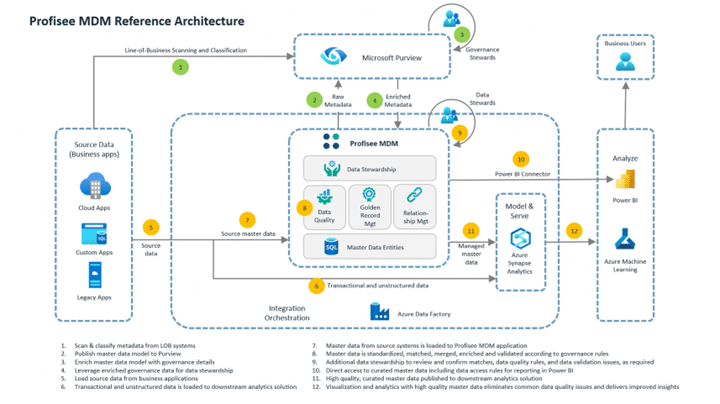
Integration with Existing Marketing Workflows
For AI marketing agents to deliver maximum value, they must integrate seamlessly with your existing workflows. I recommend mapping current processes and identifying specific automation opportunities before implementation.
Human-AI Workflow Integration
Mapping the handoffs between AI agents and human marketers
flowchart TD
Start[Campaign Planning] --> Human1[Human: Strategy & Goals]
Human1 --> Agent1[AI Agent: Audience Segmentation]
Agent1 --> Agent2[AI Agent: Content Generation]
Agent2 --> Human2[Human: Content Review & Approval]
Human2 --> Agent3[AI Agent: Campaign Execution]
Agent3 --> Agent4[AI Agent: Performance Monitoring]
Agent4 --> Human3[Human: Strategic Adjustments]
style Human1 fill:#E3F2FD,stroke:#90CAF9
style Human2 fill:#E3F2FD,stroke:#90CAF9
style Human3 fill:#E3F2FD,stroke:#90CAF9
style Agent1 fill:#FFF3E0,stroke:#FF8000
style Agent2 fill:#FFF3E0,stroke:#FF8000
style Agent3 fill:#FFF3E0,stroke:#FF8000
style Agent4 fill:#FFF3E0,stroke:#FF8000
Creating seamless handoffs between AI agents and human marketers is crucial, as is developing clear protocols for agent oversight and intervention. Remember that the goal is augmentation, not replacement—finding the right balance between automation and human creativity.
Transformative Use Cases for AI Marketing Agents
I've seen AI marketing agents deliver exceptional results across various marketing functions. Here are some of the most impactful use cases I've encountered in my work with these technologies.
Content Creation and Optimization

One of the most immediate applications I've implemented is using AI agents to generate campaign copy, email content, and social media posts. These agents can create multiple content variations and then A/B test them automatically to identify the most effective messaging.
What makes this approach particularly powerful is how the agents continuously refine messaging based on performance data, creating a virtuous cycle of improvement.
I've found PageOn.ai's AI Blocks feature invaluable for rapidly visualizing and structuring content concepts before deployment, helping teams align on messaging strategy before the AI agent begins generating variations.
This approach is especially valuable for creating ai-generated marketing content that maintains brand voice while optimizing for performance.
Customer Journey Orchestration
AI marketing agents excel at mapping and managing complex, multi-touch customer journeys. They can trigger personalized interventions at critical moments and identify bottlenecks in the customer journey that might be reducing conversion rates.
AI-Orchestrated Customer Journey
How AI agents manage personalized customer experiences
flowchart TD
Start[Website Visit] --> A{Interest Level}
A -->|High Interest| B[Personalized Product Demo]
A -->|Medium Interest| C[Educational Content]
A -->|Low Interest| D[Awareness Content]
B --> E{Engagement}
C --> E
D --> E
E -->|Strong| F[Sales Outreach]
E -->|Moderate| G[Nurture Sequence]
E -->|Weak| H[Retargeting Campaign]
F --> I[Purchase Decision]
G --> J{Re-engagement}
H --> J
J -->|Successful| I
J -->|Unsuccessful| K[Dormant Status]
I --> L[Onboarding]
L --> M[Retention & Upsell]
style Start fill:#E0F2F1,stroke:#80CBC4
style A fill:#FFF3E0,stroke:#FF8000
style E fill:#FFF3E0,stroke:#FF8000
style J fill:#FFF3E0,stroke:#FF8000
style I fill:#E8F5E9,stroke:#81C784
style M fill:#E8F5E9,stroke:#81C784
I've used PageOn.ai to create visual customer journey maps that help align teams on agent-managed processes. These visualizations make it easier to understand the complex decision trees that AI agents navigate when orchestrating personalized customer experiences.
Campaign Performance Management
AI-Optimized Campaign Performance
Conversion rate improvements through automated optimization
AI marketing agents excel at continuous monitoring of KPIs across channels and automatic budget reallocation based on performance. I've implemented systems that identify emerging trends and opportunities that human marketers might miss, especially when analyzing data across multiple platforms simultaneously.
One of the most valuable aspects is how these agents can generate comprehensive performance reports and visualizations that make complex data accessible to stakeholders across the organization.
Predictive Customer Analytics
Perhaps the most sophisticated application I've worked with is using AI agents for predictive customer analytics. These systems can forecast customer behavior and purchase intent with remarkable accuracy, helping marketing teams focus their efforts on high-value prospects.
They're also invaluable for identifying churn risk and recommending proactive retention strategies before customers even show explicit signs of disengagement.
I've used PageOn.ai to transform complex predictive insights into clear visual narratives for stakeholders who may not have technical backgrounds but need to understand the strategic implications of the data.
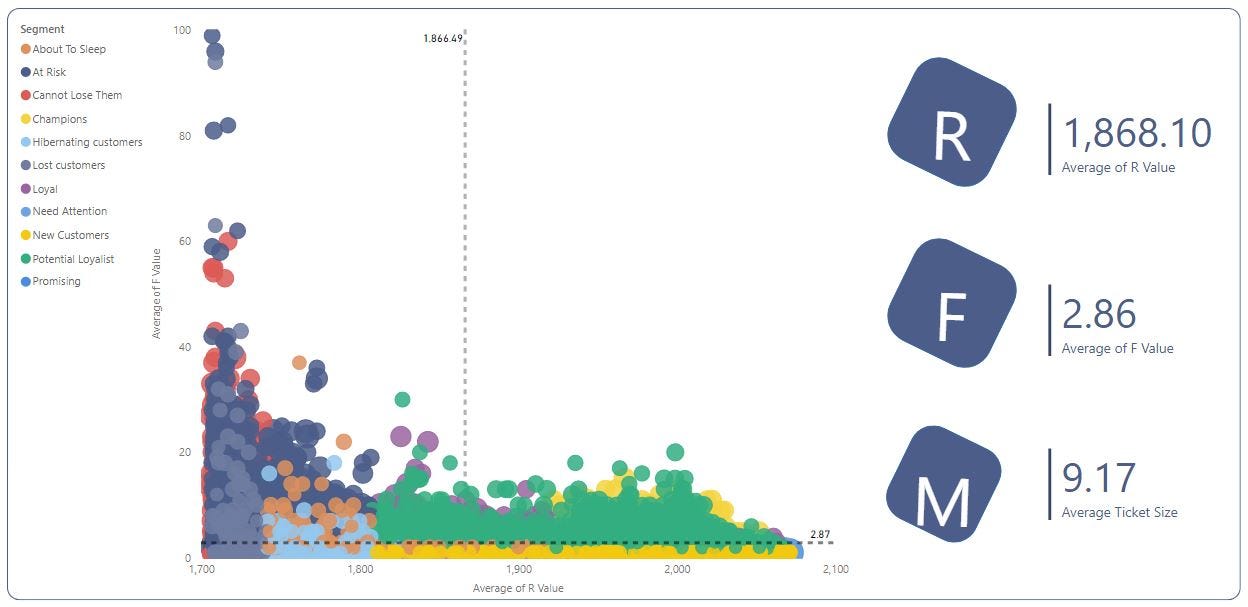
Leading AI Marketing Agent Platforms and Solutions
Through my work implementing AI marketing solutions, I've had hands-on experience with several leading platforms. Here's my assessment of the top options currently available.
Salesforce Agentforce
Salesforce's Agentforce is an AI agent framework that powers intelligent, autonomous marketing execution within the broader Salesforce ecosystem. It's designed to work across Marketing Cloud, Sales Cloud, Einstein AI, and Data Cloud, enabling businesses to automate complex, data-rich marketing workflows.
What makes Agentforce particularly powerful is its ability to build end-to-end campaigns, including generating campaign briefs, target audience segments, content, and customer journeys based on your goals and guidelines.
Several major brands including Meta and Fisher & Paykel have implemented Agentforce to transform their marketing operations, achieving significant improvements in efficiency and personalization.
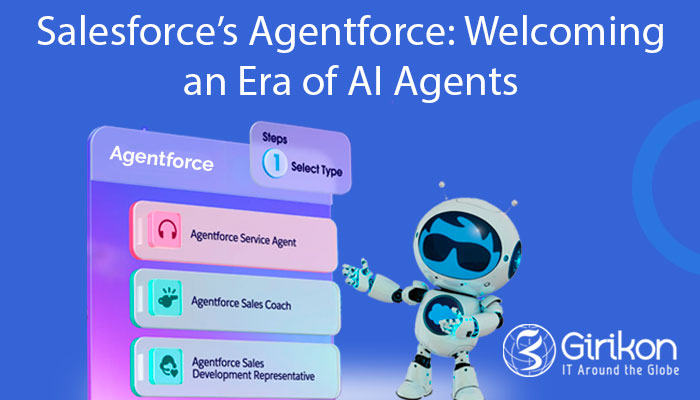
Zapier's AI Agent Capabilities
Zapier has emerged as what I consider the "Lego of tech stack and process integration" and one of the original AI agent platforms. It allows marketers to build connections and marketing automations between thousands of different systems, saving time and reducing repetitive tasks.
Zapier's Marketing Workflow Automation
How Zapier connects marketing tools with continuous AI agents
flowchart TD
A[CRM Lead Update] --> Z{Zapier AI Agent}
B[Social Media Mention] --> Z
C[Website Form Submission] --> Z
D[Email Engagement] --> Z
Z --> E[Update Lead Score]
Z --> F[Create Task in Project Management]
Z --> G[Add to Nurture Campaign]
Z --> H[Alert Sales Team]
style Z fill:#FF8000,stroke:#E65100,color:#fff
style A fill:#E3F2FD,stroke:#90CAF9
style B fill:#E3F2FD,stroke:#90CAF9
style C fill:#E3F2FD,stroke:#90CAF9
style D fill:#E3F2FD,stroke:#90CAF9
style E fill:#F5F5F5,stroke:#E0E0E0
style F fill:#F5F5F5,stroke:#E0E0E0
style G fill:#F5F5F5,stroke:#E0E0E0
style H fill:#F5F5F5,stroke:#E0E0E0
What I find particularly valuable about Zapier's approach is its continuous AI agents that run persistently and act on new data in real-time. This is especially useful for sales, research, or administrative tasks that require constant monitoring and quick responses.
Specialized AI Marketing Agents
Content Marketing Agents
Specialized tools focused on content creation, optimization, and distribution across channels. These agents can generate blog posts, social media content, and email campaigns while ensuring consistent brand voice.
SEO & SEM Agents
Dedicated agents for search optimization that can analyze keywords, optimize content, manage bidding strategies, and continuously adjust tactics based on search algorithm changes.
Customer Engagement Agents
Focused on personalized customer interactions across email, chat, and social media. These agents can respond to inquiries, provide recommendations, and escalate issues when necessary.
Analytics & Reporting Agents
Specialized in data analysis, these agents continuously monitor performance metrics, identify trends, and generate actionable insights and reports for marketing teams.
PageOn.ai's Role in Enhancing AI Marketing Agent Workflows
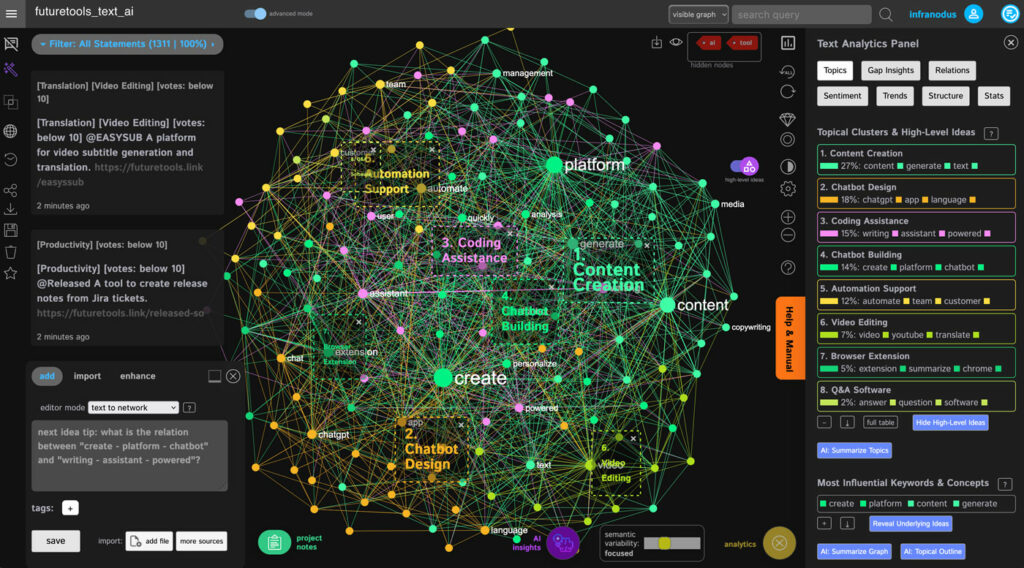
Throughout my work with AI marketing agents, I've found PageOn.ai to be invaluable for visualizing complex agent decisions and strategies. It helps bridge the gap between technical implementation and stakeholder understanding.
PageOn.ai excels at creating clear visual documentation of agent processes and outcomes, making it easier to communicate how AI agents are making decisions and the results they're achieving.
Perhaps most importantly, it transforms agent-generated insights into compelling visual narratives that make data accessible and actionable for marketing teams and executives alike.
Measuring ROI and Performance of AI Marketing Agents
In my experience implementing AI marketing solutions, establishing clear metrics for success is essential. Here's my approach to measuring the ROI and performance of AI marketing agents.
Establishing Meaningful KPIs
AI Marketing Agent KPI Framework
Key performance indicators by category
I categorize AI marketing agent KPIs into three main groups:
- Efficiency metrics: Time saved, tasks automated, workflow acceleration
- Effectiveness metrics: Conversion improvements, engagement increases, customer satisfaction
- Financial metrics: Cost savings, revenue impact, marketing ROI improvement
The key is selecting metrics that align with your specific business objectives and provide a holistic view of the agent's impact across multiple dimensions.
Attribution Challenges and Solutions
One of the most challenging aspects of measuring AI marketing agent performance is determining their specific impact on marketing outcomes, especially in complex multi-touch customer journeys.
I've found that implementing multi-touch attribution approaches for agent-influenced conversions provides the most accurate picture of their impact. This requires sophisticated tracking and analysis capabilities.
Creating visual attribution models with PageOn.ai has been incredibly helpful in clarifying complex customer journeys and making attribution more transparent for stakeholders.
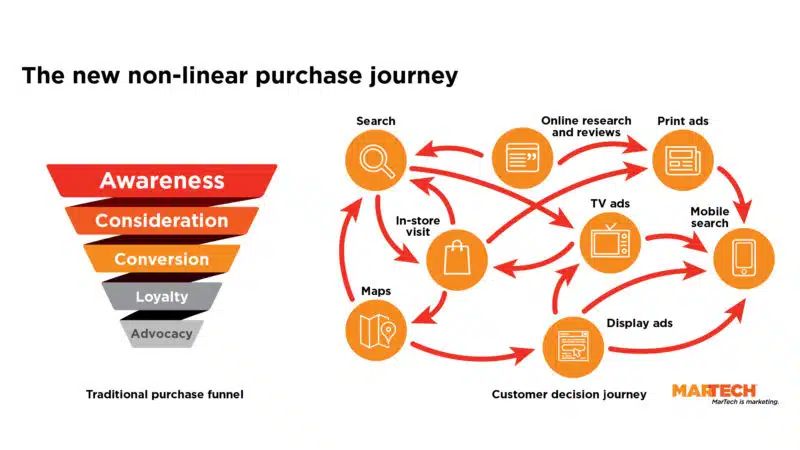
Continuous Optimization Strategies
AI Agent Optimization Cycle
Continuous improvement process for marketing agents
flowchart TD
A[Set Performance Targets] --> B[Deploy Agent Strategy]
B --> C[Collect Performance Data]
C --> D[Analyze Results]
D --> E[Identify Improvement Areas]
E --> F[Implement Adjustments]
F --> B
style A fill:#E3F2FD,stroke:#90CAF9
style B fill:#FFF3E0,stroke:#FF8000
style C fill:#F5F5F5,stroke:#E0E0E0
style D fill:#F5F5F5,stroke:#E0E0E0
style E fill:#E3F2FD,stroke:#90CAF9
style F fill:#FFF3E0,stroke:#FF8000
For AI marketing agents to deliver maximum value over time, continuous optimization is essential. I recommend implementing regular A/B testing of agent strategies and approaches to identify the most effective configurations.
Refining agent parameters based on performance data and implementing feedback loops for ongoing improvement ensures that your AI marketing agents become more effective over time, adapting to changing market conditions and customer behaviors.
The Human-AI Collaboration Model
Through my work implementing AI marketing solutions, I've developed a strong perspective on the optimal relationship between human marketers and AI agents. Here's my approach to creating effective human-AI collaboration.
Redefining Marketer Roles in an Agent-Powered Landscape

The introduction of AI marketing agents necessitates a shift in how marketers work—moving from execution to strategy and oversight. This isn't about replacement but about augmentation and focusing human creativity where it adds the most value.
I've found that this transition requires developing new skills for effective agent management, including prompt engineering, performance analysis, and strategic direction.
Creating visual workflow diagrams with PageOn.ai has been invaluable for clarifying human-AI responsibilities and ensuring everyone understands their role in this new collaborative model.
Establishing Effective Oversight Mechanisms
AI Marketing Agent Oversight Framework
Key dimensions of effective agent governance
Setting appropriate guardrails for agent autonomy is crucial for successful implementation. I've found that creating clear escalation protocols for complex situations helps maintain control while allowing agents to operate efficiently.
Implementing regular review processes for agent decisions ensures quality control and provides opportunities for continuous improvement based on human expertise and judgment.
Building AI Literacy Across Marketing Teams
For human-AI collaboration to be effective, marketing teams need to develop AI literacy. I've implemented training programs focused on working effectively with AI agents, helping team members understand both the capabilities and limitations of these systems.
Developing skills for prompt engineering and agent direction is particularly important, as it enables marketers to effectively communicate their requirements to AI systems.
Creating a culture that embraces AI augmentation rather than fearing replacement has been essential in my experience. This involves celebrating the creative and strategic work that human marketers can focus on when freed from routine tasks.

Future Trends in AI Marketing Agents
Based on my experience and research in the field, I see several exciting developments on the horizon for AI marketing agents. Here's where I believe the technology is headed.
The Impact of Advancing LLM Capabilities
Evolution of LLM Capabilities in Marketing
Progression of AI marketing capabilities with LLM advancements
flowchart LR
A["Text Generation\n(Basic Content)"] --> B["Context Awareness\n(Personalization)"]
B --> C["Multi-Modal Processing\n(Text, Image, Audio)"]
C --> D["Reasoning & Planning\n(Strategic Decisions)"]
D --> E["Autonomous Agency\n(Self-Directed Marketing)"]
style A fill:#F5F5F5,stroke:#E0E0E0
style B fill:#E3F2FD,stroke:#90CAF9
style C fill:#FFF3E0,stroke:#FF8000
style D fill:#FFF3E0,stroke:#FF8000
style E fill:#FFE0B2,stroke:#FF8000,stroke-dasharray: 5 5
As large language models continue to advance, I expect to see significant enhancements in AI marketing agent capabilities. More sophisticated models will enable more nuanced understanding of customer intent and more effective content generation.
I'm particularly excited about the development of multi-modal agents that can process text, images, audio, and video simultaneously. This will enable more comprehensive analysis of customer interactions and more creative content generation across formats.
Perhaps most significantly, we'll see an evolution from reactive to truly proactive marketing agents that can anticipate customer needs and market trends before they become explicit, enabling more forward-looking marketing strategies.
Cross-Functional Agent Collaboration

I anticipate that we'll soon see marketing agents working in concert with sales, customer service, and product agents to create cohesive customer experiences across the entire organization.
This cross-functional collaboration will break down traditional silos and enable more seamless customer journeys that adapt in real-time based on interactions across all touchpoints.
I've already started using PageOn.ai to visualize and optimize cross-functional agent workflows, helping teams understand how these collaborative systems will operate and the value they'll deliver.
Ethical Considerations and Responsible AI Marketing
As AI marketing agents become more autonomous, ethical considerations become increasingly important. I'm particularly focused on the privacy implications of these systems and how to ensure they operate in ways that respect customer boundaries.
Transparency requirements for agent-driven decisions will become more formalized, both through regulation and industry best practices. Explaining how AI systems make recommendations will be essential for maintaining trust.
Building trust with customers in an age of AI marketing requires thoughtful implementation and clear communication about how their data is being used and the benefits they receive in return.
Preparing for the Next Generation of Marketing AI
Strategic Investment Areas for Future-Ready Marketing AI
Priority investment categories for marketing organizations
To prepare for the next generation of marketing AI, organizations should be monitoring emerging capabilities and making strategic investments in their marketing technology stack.
I recommend focusing on building flexible, future-proof foundations—particularly in data infrastructure, AI talent development, and integration capabilities that will allow you to quickly adopt new technologies as they emerge.
Using PageOn.ai's planning tools to visualize your AI marketing roadmap can help align stakeholders around a common vision and ensure investments are prioritized effectively for maximum impact.
Transform Your Visual Expressions with PageOn.ai
Ready to bring clarity to your AI marketing strategy? PageOn.ai helps you create stunning visualizations that communicate complex AI marketing concepts, workflows, and results with clarity and impact.
Start Creating with PageOn.ai TodayConclusion: The Future of Marketing is Agent-Augmented
As I reflect on the evolution of AI marketing agents, I'm convinced that we're witnessing a fundamental transformation in how marketing is executed. These autonomous systems aren't replacing human marketers but rather augmenting their capabilities, allowing them to focus on strategy, creativity, and human connection.
The organizations that will thrive in this new landscape are those that embrace the human-AI collaboration model, investing in both technology and people to create marketing operations that are more efficient, effective, and innovative than ever before.
By visualizing complex AI marketing concepts and workflows with tools like PageOn.ai, teams can better understand, implement, and optimize these powerful new capabilities, ensuring they deliver maximum value for both the business and its customers.
You Might Also Like
Enhancing Audience Experience with Strategic Audio Integration | Create Immersive Brand Connections
Discover how strategic audio integration creates immersive brand connections across podcasts, streaming platforms, and smart speakers. Learn frameworks and techniques to transform your marketing.
Building New Slides from Prompts in Seconds | AI-Powered Presentation Creation
Discover how to create professional presentations instantly using AI prompts. Learn techniques for crafting perfect prompts that generate stunning slides without design skills.
Advanced Shape Effects for Professional Slide Design | Transform Your Presentations
Discover professional slide design techniques using advanced shape effects. Learn strategic implementation, customization, and optimization to create stunning presentations that engage audiences.
The Art of Text Contrast: Transform Audience Engagement With Visual Hierarchy
Discover how strategic text contrast can guide audience attention, enhance information retention, and create more engaging content across presentations, videos, and marketing materials.